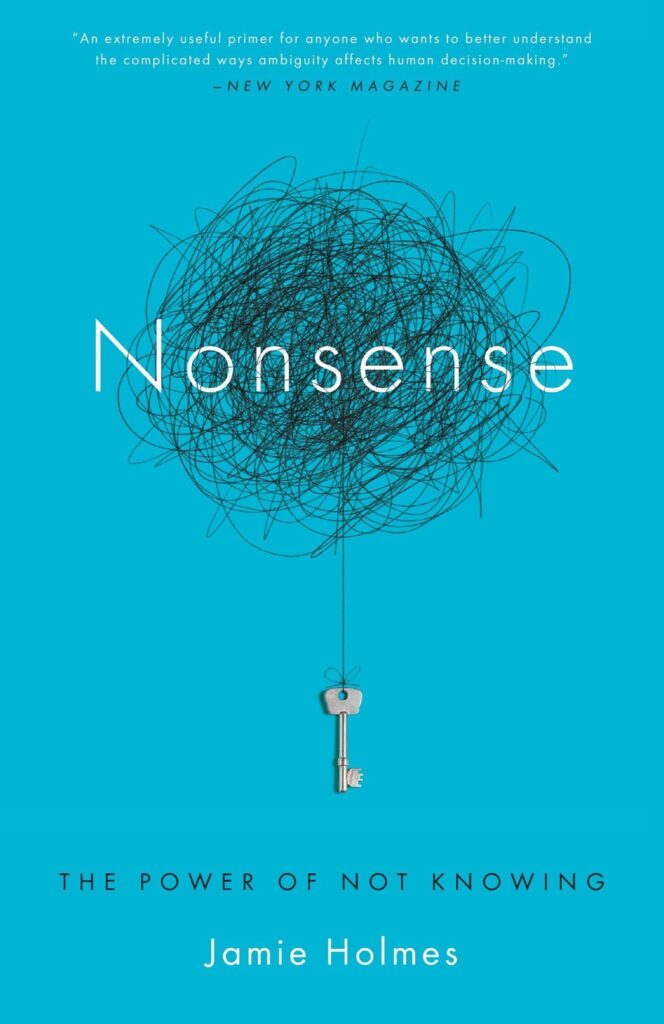Sharing my learnings from the book, Nonsense by Jamie Holmes
Nonsense by Jamie Holmes
As Jamie Holmes shows in Nonsense, being confused is unpleasant, so we tend to shutter our minds as we grasp for meaning and stability, especially in stressful circumstances. We’re hard-wired to resolve contradictions quickly and extinguish anomalies. This can be useful, of course. When a tiger is chasing you, you can’t be indecisive. But as Nonsense reveals, our need for closure has its own dangers. It makes us stick to our first answer, which is not always the best, and it makes us search for meaning in the wrong places. When we latch onto fast and easy truths, we lose a vital opportunity to learn something new, solve a hard problem, or see the world from another perspective.
In an increasingly unpredictable, complex world, it turns out that what matters most isn’t IQ, willpower, or confidence in what we know. It’s how we deal with what we don’t understand.

- There’s a lot of nonsense and ambiguity in our daily lives, even though we don’t always notice it. We can’t always make sense of the things around us – and sometimes that makes us laugh!
- Humor often hinges on subtle ambiguity.
- Marketers know that people like this kind of playful ambiguity, and they know how to use it to their advantage. Good marketers know that ambiguity can be an effective way of grabbing people’s attention in advertising.
- Nonsense isn’t always positive, however. It can also have the opposite effect.
- Studies have shown that when ambiguity isn’t consciously resolved, it creates anxiety and can influence your beliefs.
- Ambiguity can also influence people’s opinions by making them stressed out.
- Children easily navigate through ambiguity. Children explain ambiguity with ease, but that ability diminishes as we get older. That’s why adults sometimes have a hard time processing irrationality.
- In times of uncertainty and anxiety, people want straightforward answers. Straightforward answers aren’t always the best ones, however.
- An inability to weigh new or different options is usually a hindrance in politics. It’s a big part of the reason that dissenting minority voices are often silenced.
- In 2003, psychologist Antonio Pierra did a study on this. He found that when people feel pressured and want a quick solution to a problem, they tend to favor dictatorial systems where one loud voice prevails.
- Our desire to favor simple explanations over ambiguity can even fuel extreme cults.
- People make drastic decisions during and after natural disasters because they’re faced with an ambiguous future.
- Michel Thomas developed a new method for dealing with the ambiguity in language instruction. the best strategy is to make them feel relaxed.
- In profoundly stressful situations like that, it’s critical to stay calm.


Leave a Reply